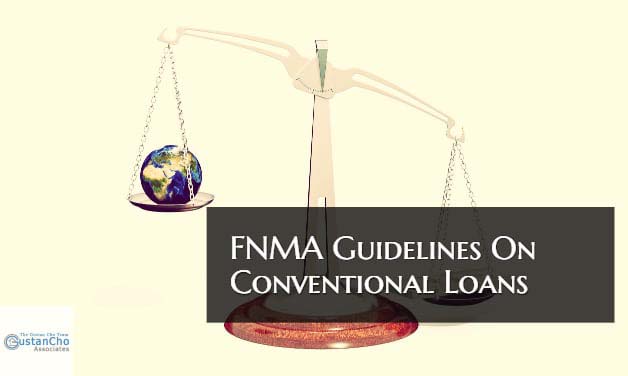FNMA Guidelines on Judgments For Conventional Loans
This BLOG On FNMA Guidelines On Conventional Loan After Bankruptcy Was UPDATED And PUBLISHED On May 15th, 2020
Update On FNMA Guidelines On Conventional Loan After Bankruptcy
There are two types of Bankruptcies.
- A Chapter 7 Bankruptcy which is also called total liquidation
- Chapter 13 Bankruptcy which is a repayment and restructuring of the debts
- Petitioners do not need to have a job for a Chapter 7 Bankruptcy
- All of the assets gets liquidated and most debts gets discharged with Chapter 7 Bankruptcy
- After a Chapter 7 Bankruptcy discharge, a consumer can get a fresh start on their financial life
- Do not have to worry about debt collectors calling them
- All judgments and outstanding unpaid collection accounts gets discharged
Consumers do not have to worry about it anymore after Chapter 7 discharge.
FNMA Guidelines On Conventional Loan After Bankruptcy: Debts That Cannot Be Discharged
The only debts that cannot be discharged on a Chapter 7 Bankruptcy are the following:
- government debt such as state and federal income taxes
- government backed student loans
- moneys owed to city, county, state
- state and federal government debt like fines
In this article, we will discuss and cover FNMA Guidelines On Conventional Loan After Bankruptcy.
Dischargeable Debts With Bankruptcy
All other debts such as medical collections, charge off accounts, non-medical collections, judgments, personal debts, and any unsecured and secured debts gets discharged and the petitioner does not have to worry about it:
- All wage garnishments and liens due to money owed gets discharged
- The consumer starts a fresh financial life.
- With a Chapter 13 Bankruptcy, petitioners need to be employed in order to qualify for a Chapter 13 Bankruptcy
- This is because a portion of the wage earner’s wages will be allocated and distributed among the petitioner’s creditors
- Unemployed people or those not making enough money will not qualify for a Chapter 13 Bankruptcy
- Under a Chapter 13 Bankruptcy, a percentage of the wage earner’s income is set aside and paid by the Trustee of the Chapter 13 Bankruptcy and divided up to pay the creditors
- This repayment plan is normally for a period of five years
After the five years is up, the remaining debts that is owed to the creditors is totally discharged and the consumer is now debt free.
Waiting Period After Bankruptcy To Qualify For Conforming Loans
FNMA Guidelines On Conventional Loan After Bankruptcy require a mandatory waiting for borrowers to qualify:
- There is a four year waiting period to qualify for a Conventional Loan after a Chapter 7 Bankruptcy discharged date
There is a two year waiting period to qualify for a Conventional Loan after a Chapter 13 Bankruptcy discharged date.
FNMA Guidelines On Conventional Loan After Bankruptcy With Late Payments After Discharge
Conventional mortgage lenders do not want to see any late payments after a bankruptcy and re-established credit after bankruptcyis a must.
- Minimum credit scores required to qualify for a conventional loan is 620 credit scores
- With Conventional Loans, the higher credit scores are, the lower mortgage interest rates will be
It is very important to maximize credit scores to the highest level possible before applying for a Conventional Loan to get the best mortgage rates.
FNMA Guidelines On Conventional Loan After Bankruptcy On Mortgage Part Of Bankruptcy
FHA Loans are one of the most popular mortgage loan programs in the United States due to the lenient credit and lending guidelines it offers over Conventional Loans.
- However, there are times where a home buyer does not qualify for a FHA Loan but will qualify for a Conventional Loan if the home buyer had a mortgage part of a Chapter 7 Bankruptcy
- FNMA Guidelines On Conventional Loan After Bankruptcy states that if a borrower had a mortgage part of their Chapter 7 Bankruptcy, there is a mandatory four year waiting period to qualify for a Conventional Loan
- This holds true even though if the foreclosure is not recorded until a later date after the Chapter 7 Bankruptcy discharged date
- This is different with FHA Loans where if the borrower had a mortgage part of bankruptcy
- FHA requires a three year mandatory waiting period after the recorded date of the foreclosure on the mortgage that was part of the Chapter 7 Bankruptcy discharge
Most lenders are not in a major hurry in transferring the deed of the property out of the homeowners name into their name.
Importance Of The Recorded Date Of The Housing Event
There are times where it may take years for the actual foreclosure to be transferred out of the homeowners name after the Chapter 7 Bankruptcy discharged date:
- The three year mandatory waiting period does not start until the foreclosure has been finalized
- The deed needs to be transferred out of the homeowners name and into the name of the lender
- Or date of the sheriff’s sale and recorded on the county recorder of deeds office for FHA Loans
With this new Fannie Mae Guidelines On Mortgage Part Of Bankruptcy, it opens up many doors for home buyers who had a mortgage or mortgages as part of their Chapter 7 Bankruptcy and the housing event has not been recorded until a later date.
Qualifying For Conventional Mortgage With Lender With No Overlays
Borrowers who had prior bankruptcy and/or a mortgage part of Chapter bankruptcy and are looking for a Conventional mortgage lender with no lender overlays, please contact us at Gustan Cho Associates at 800-900-8569 or text us for a faster response. Or email us at gcho@gustancho.com.

